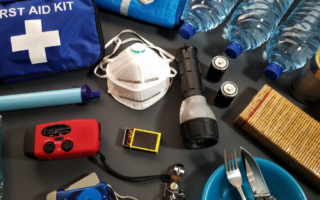In today’s fast-paced world, intelligence is highly valued, and many individuals aspire to enhance their cognitive abilities. Fortunately, intelligence is not solely determined by genetics but can also be cultivated through various practices and habits. In this comprehensive guide, we will explore effective strategies to boost your intelligence and unlock your full intellectual potential.
1. Understanding Intelligence:
Before delving into ways to enhance intelligence, it’s essential to understand what intelligence entails. Improving intelligence involves enhancing a range of cognitive abilities such as reasoning, problem-solving, memory, creativity, and emotional intelligence. Strengthening these skills contributes to boosting overall intellectual capacity.
2. The Five Influences on Intelligence:
Several factors influence intelligence, including genetics, environment, education, nutrition, and lifestyle. While genetics play a significant role in determining baseline intelligence, environmental factors such as upbringing, education, and experiences also contribute significantly to cognitive development.
3. Strategies to Make Your Brain Smarter and Faster:
Engage in Mental Exercises: Just as physical exercise strengthens the body, mental exercises can enhance brain function. Activities like puzzles, brainteasers, and learning new skills stimulate neural connections and promote cognitive agility.Get Sufficient Sleep: Adequate sleep is crucial for cognitive function, memory consolidation, and learning. Aim for 7-9 hours of quality sleep each night to support optimal brain health.
Consume a balanced diet rich in antioxidants, omega-3 fatty acids, vitamins, and minerals to support cognitive function and protect against age-related cognitive decline. Stay Physically Active Regular exercise not only benefits physical health but also enhances brain function. Engage in aerobic exercises like walking, jogging, or cycling to boost blood flow to the brain and stimulate the release of neurotransmitters associated with learning and memory.
4. Tips for Students to Make Their Brain Smarter and Faster:
Utilize Active Learning Techniques: Instead of passively absorbing information, engage in active learning strategies like summarizing, teaching others, and self-testing. These methods enhance comprehension and retention of material. Create a conducive Study Environment: Minimize distractions and create a study space that is conducive to concentration and focus.
Organize study materials, eliminate clutter, and establish a consistent study routine to optimize learning. Take Regular Breaks: Avoid studying for prolonged periods without breaks, as this can lead to mental fatigue and reduced productivity. Schedule regular breaks to rest, recharge, and maintain cognitive efficiency.Practice Spaced Repetition: Instead of cramming information all at once, space out study sessions over time. Spaced repetition enhances long-term retention and promotes deeper learning.
5. Cultivating Continuous Intellectual Growth:
a. Embrace Lifelong Learning: The quest for knowledge should be a lifelong endeavor. Cultivate a curious mindset and actively seek out opportunities for learning and self-improvement. b. Read Widely and Diversely: Reading is one of the most effective ways to expand your knowledge and intellectual horizons. Explore diverse genres, topics, and perspectives to broaden your understanding of the world. c. Engage in Intellectual
Discussions: Surround yourself with intellectually stimulating individuals and participate in discussions that challenge your viewpoints and broaden your perspectives. d. Set Intellectual Goals: Establish clear goals for intellectual growth and development. Whether it’s mastering a new skill, learning a new language, or delving into a new field of study, set achievable objectives and track your progress over time. e. Reflect and Review: Take time to reflect on your intellectual journey and review your accomplishments and challenges. Assess what strategies have been effective and identify areas for further improvement.
What are the five influences that impact intelligence?
Intelligence results from a blend of genetic predisposition, environmental circumstances, and lifestyle choices. Here are five key influences that impact intelligence:
Genetics: Genetic factors show an important part in shaping a person’s intelligence. Studies have shown that intelligence is heritable, meaning that certain genetic traits inherited from parents can contribute to intellectual abilities.
Environment: Environmental factors, including early childhood experiences, education, socioeconomic status, and cultural influences, also shape intelligence. Access to quality education, supportive family environments, and stimulating learning opportunities can positively impact cognitive development.
Nutrition: Proper nutrition is essential for brain health and cognitive function. Adequate intake of essential nutrients, such as omega-3 fatty acids, vitamins, and minerals, supports optimal brain development and function, influencing intelligence.
Stimulating Activities: Engaging in intellectually stimulating activities, such as reading, problem-solving, learning new skills, and participating in educational programs, can enhance cognitive abilities and contribute to overall intelligence.
Neuroplasticity: The brain’s ability to adapt and reorganize in response to experiences, known as neuroplasticity, plays a crucial role in intelligence. By engaging in activities that promote neuroplasticity, such as mental exercises, challenging tasks, and lifelong learning, individuals can improve cognitive function and intelligence.
ALSO READ: Top Goal Setting Process Steps
How to become smarter every day
Read Widely: Make a habit of reading books, articles, and other informative materials on a variety of subjects. Reading exposes you to new ideas, perspectives, and knowledge, expanding your intellectual horizons.
Practice Critical Thinking: Develop your analytical and problem-solving skills by questioning assumptions, evaluating evidence, and reasoning logically. Engage in activities that require you to think critically, such as puzzles, debates, and thought experiments.
Learn Something New: Challenge yourself to acquire new skills or knowledge regularly. Whether it’s learning a new language, mastering a musical instrument, or taking up a hobby, continuous learning stimulates brain growth and enhances cognitive function.
Stay Curious: Cultivate a sense of curiosity and a thirst for knowledge.
Inquire, pursue solutions, and delve into subjects that ignite your curiosity. Curiosity fuels intellectual growth and drives lifelong learning.
Engage in Intellectual Discussions: Surround yourself with intellectually stimulating conversations and debates. Engaging in discussions with others who have diverse perspectives and insights can broaden your understanding and sharpen your intellect.
Reflect and Review: Take time to reflect on your experiences, thoughts, and ideas. Reviewing what you’ve learned and reflecting on your successes and failures helps consolidate knowledge and facilitates deeper understanding.
Challenge Yourself: Step out of your comfort zone and tackle challenges that push you to grow intellectually. Embrace opportunities that require creative problem-solving and innovation, and don’t be afraid to take risks.
Stay Active: Regular physical activity not only benefits your physical health but also enhances cognitive function. Physical activity enhances cerebral blood flow, fosters the development of fresh neurons, and boosts memory and focus.
Get Adequate Sleep: Quality sleep is essential for cognitive function and memory consolidation. Aim for 7-9 hours of uninterrupted sleep each night to support brain health and optimize cognitive performance.
Practice Mindfulness: Incorporate mindfulness practices, such as meditation and deep breathing exercises, into your daily routine. Mindfulness helps reduce stress, enhance focus and attention, and promote overall mental well-being, contributing to greater intellectual clarity and acuity.
Always Enhance Your Intelligence
Enhancing intelligence is a multifaceted endeavor that requires commitment, discipline, and a growth-oriented mindset. By implementing the strategies outlined in this guide, you can boost your cognitive abilities, sharpen your mental faculties, and embark on a journey of continuous intellectual growth.
FAQs
How quickly can I expect to see improvements in my intelligence?
The rate of improvement in intelligence varies depending on individual factors such as genetics, lifestyle, and the specific strategies employed. While some may notice subtle improvements relatively quickly, significant gains in intelligence may take longer to manifest and require consistent effort over time.
Are there any supplements or medications that can enhance intelligence?
While certain supplements and medications claim to enhance cognitive function, their effectiveness and safety remain a topic of debate among experts. It’s crucial to use such products carefully and seek advice from a healthcare provider before integrating them into your regimen.
Can intelligence be measured accurately through standardized tests?
Standardized tests provide a standardized measure of cognitive abilities, but they may not capture the full spectrum of intelligence accurately. Factors such as cultural bias, test-taking skills, and external influences can affect test performance, making it challenging to assess intelligence comprehensively.
How can I maintain intellectual stimulation as I age?
To maintain intellectual stimulation as you age, engage in activities that challenge your cognitive abilities, such as reading, learning new skills, playing brain games, and participating in intellectually stimulating discussions. Additionally, staying socially connected and physically active can support overall brain health and cognitive function.
Are there any potential drawbacks to pursuing strategies to boost intelligence?
While strategies to boost intelligence can be beneficial, there may be potential drawbacks to consider. Overemphasis on intellectual pursuits at the expense of other aspects of life, such as social relationships and emotional well-being, can lead to imbalance and burnout. Additionally, unrealistic expectations or reliance on quick-fix solutions may result in frustration and disappointment. It’s essential to approach efforts to enhance intelligence with moderation and a balanced perspective.




